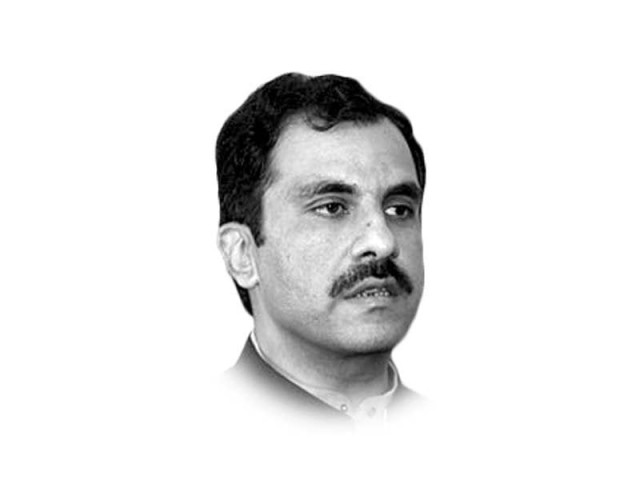Thoughts at apparition
There is an absolute possibility that our political philosophy has not yet really born

The writer is a civil servant based
in Quetta
The first decade after Independence witnessed the political philosophy of a true-nation state. There was nationalistic unionism which was the driving factor behind the building of the state. The country was one individual in body and soul, striving to achieve the ideals of a nation-state. It was an age of perfumery rosemaries.
The above period did not last long. The capitalistic political philosophy dominated the next decade as our political philosophy grew under the load of American capitalism. It turned out to be an age of national progress and state development. The industry, agriculture and modernisation of economy picked up pace. We had a liberal citizenry back then. The world was watching us and we were busy impressing the world.
Having being done with capitalism, we were indoctrinated that the solution to our problems lied in a somewhat different system. The “roti, kapra and makaan” era thus dawned upon us as our next political philosophy. There was the grand nationalisation of the state machinery and a burning desire for land settlement. This was the strongest fictional age of the “rule of the common man”. However, this fiction was ephemeral.
The evolutionary ecology of our political philosophy once more unpredictably turned over. From sheer socialism, we submerged into a fundamentalist theocracy. The Islamisation of the state began rapidly. The concept of an Islamic State erupted all around. This came in the wake of a struggling tug of war between communism and capitalism globally. Our political philosophy during this time was inspired by religious enthusiasm, the concept of one ummah and the glamour of an Islamic State. The liberal citizenry began to shrink.
The theocratic political philosophy also lived a short life. No major philosophies seem to have shaped our minds since then. The people next adopted sharply two schools of political thought. One which was dominated by the erstwhile socialistic regime and the other by somewhat left over theocratic ideas, thereby unequally dividing the citizenry into liberals and non-liberals.
The major political philosophy the people next adhered to was that of enlightenment. The freedom allotted to the print and electronic media and the excessive flow of funds into our economy reshaped out political identities and brought up a new political thought. This could be said to be an admixture of modernity and openness. There was a unique characteristic of this “political philosophy” that it did not develop any “political ideology” intentionally.
From enlightenment we came to the present day political philosophy of haphazardness. Elements like the rule of law, more independent provincial units, and less dependence on the centre, national corruption cleansing, etc, accumulated to make up our current political philosophy. Academically, there could be a disagreement regarding these features as well. The distinctive feature of our present-day political philosophy is surprise and confusion.
Political philosophies, when born out of people, create times and circumstances. Our political philosophies have been the product of the time and circumstances. Thus, there is an absolute possibility that our political philosophy has not yet really born and we are incorrectly searching for the missing links in our evolutionary trail.
Published in The Express Tribune, December 5th, 2019.
Like Opinion & Editorial on Facebook, follow @ETOpEd on Twitter to receive all updates on all our daily pieces.















COMMENTS
Comments are moderated and generally will be posted if they are on-topic and not abusive.
For more information, please see our Comments FAQ